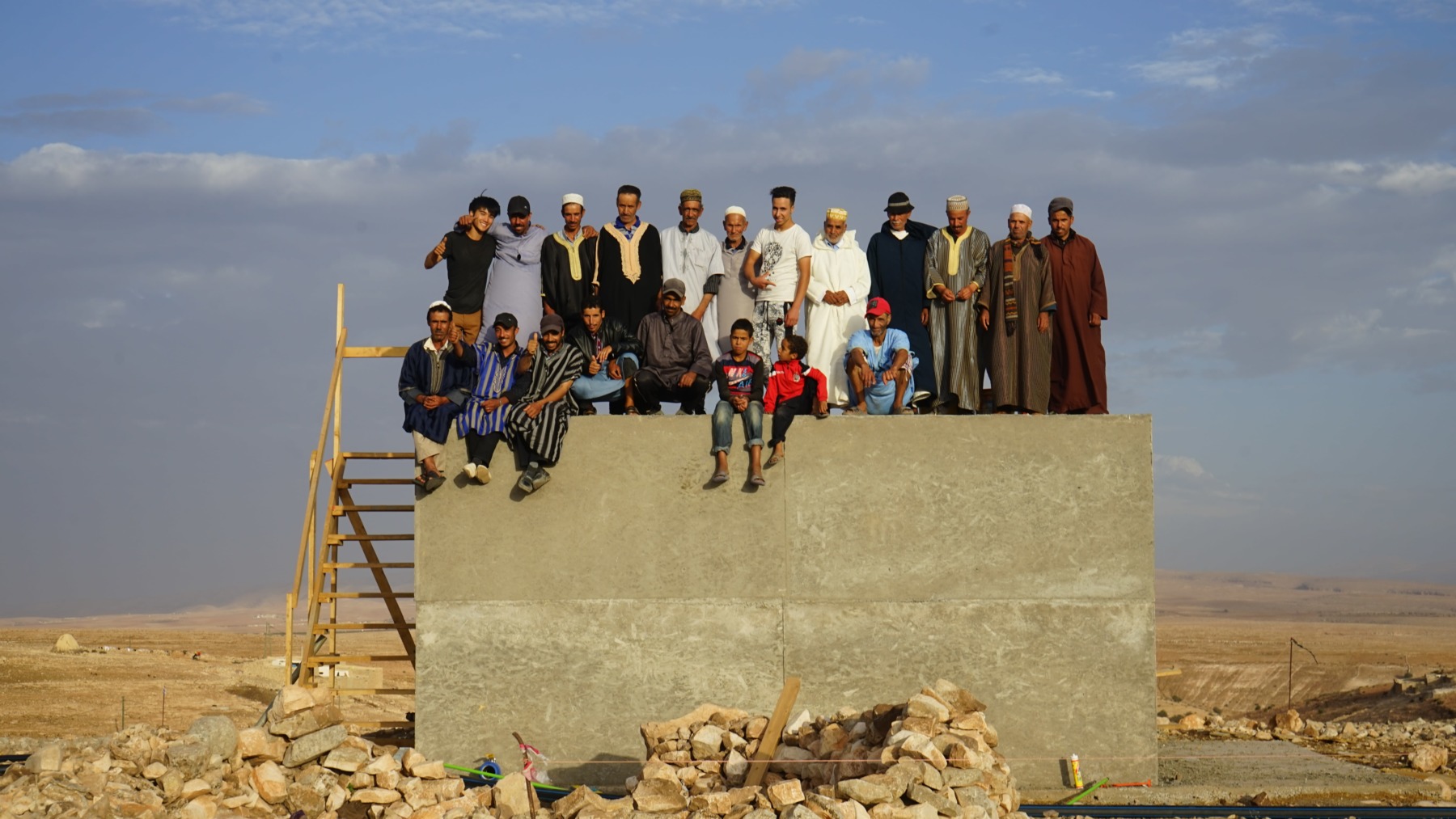Intro to the AIF Clinton Fellowship
Relentless dreaming to me means persevering in this dream of mine. It is clear that there is not equity in the world. I am in pursuit of my dream to help others. To use my privilege of education to empower others to achieve their full potentials through access to opportunities.
 |
|---|
| My arrival to India in September 2019. |
At the helm of my experiences is the concept of beauty. I am motivated by a beautiful world. A society where we can live in harmony and at peace with each other. A community where there is no unnecessary suffering. Hunger, water scarcity, and avoidable health issues should be the priority of our efforts to lift each other up.
 |
|---|
| Standing on top of a 38,000 L tank built for a rural community in Morocco facing water scarcity in August 2019 before I joined the AIF Clinton Fellowship in India. |
I’ve been increasingly focused on the phenomenon of the rural to urban migration. To me, this migration is a symptom of a larger systemic cause. I want to interview these migrants. They are located in the slums. The origin, however, as a colleague, Noorie, shared with me is that these migrants originate from the rural areas. The slums represent the fringes of both localities; urban and rural.
At the same time, it is the consumption patterns of those living in the city that fuel land degradation, rural degradation, and larger environmental degradation. We need to have sustainable cities, meaning that value systems are aligned with environmental regeneration. Bolstering the rural will not be enough. It is interesting that cities do not exist without the rural; this interdependence, as such labeled inter- because the cash economy has penetrated into rural regions, is shrouded from plain view.
 |
|---|
| From the inside of the metro, looking out at the urban metropolis of Bangalore. |
We need to introduce and instill in citizens everywhere, regeneration as a value. Otherwise, the diversity of species will dwindle, our air will become more polluted, and we’ll have a degraded world landscaped by our human hands. We are already seeing the effects in our melting glaciers, bleached corals, and species loss.
Over the past five years, I have sought to address these persistent and evolving thoughts. When the AIF Clinton Fellowship came to my attention, I applied, drawn in by the motto “Serve-Learn-Lead,” the opportunity to practice my Hindi, and the chance to implement change in a country where the majority is rural and work in the informal sector.
My focus for this fellowship is two-fold: acquiring experience in building a social enterprise and sharpening my Hindi. These two skills will help me build the capacity to one day, ambitiously make large-scale and lasting change in this world.
Ever since I read Building Social Business by Muhammad Yunus in freshman year of college, I’ve been fascinated with the concept that one could make a living while helping others. Specifically, he leveraged market forces, listened to his customers, and created business schemes that made it affordable for those experiencing poverty. Although I don’t believe every business must be socially oriented to make social impact, for example the mobile phone, I find the opportunity to work in a real social enterprise valuable to build my capacity for change making.
My other focus, fluency in Hindi, will allow me to effectively employ human centered design for a massive rural population in India. I am inspired by human centered designers and engineers such as Heather Fleming and Tim Prestero. By listening to the users we design for, we can deliver real value by addressing real and sometimes unarticulated needs.diwali celebration
 |
|---|
| Celebrating Diwali with my Fellowship project supervisor Sheeba and her family. |
For the next eight months, I’ll be largely switching off my technical engineering skillset and switching on my social work side. To aid in this transition, I have reflected on the transferrable knowledge I’ve developed from my past summers conducting international science research, design and implementation of a water distribution system, and the cumulative sum of my higher studies from physics to engineering. Some transferrable skills include fundraising, report writing, stakeholder management, design thinking, systems thinking in a physics sense, cultural awareness and understanding, empathy, facilitation, and creating deliverables.
Thus far, working with my Fellowship advisor Sheeba at Alaap has been a dream come true. Alaap is an organization seeking to transition towards a social enterprise. Historically they’ve worked in Uttarakhand to restore rural degraded lands with dense and native forests. Our mission is to create a model that can scale to address the climate crisis, for the world. We’ll be starting in India.